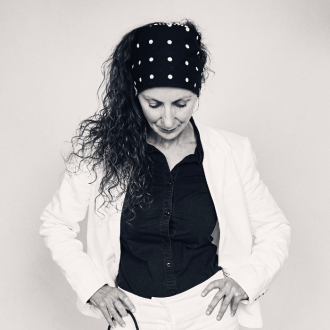- Postgraduate
Electronic Music Composition MMus
Overview
The London College of Music (LCM) is known in the UK and abroad as a leader in music technology studies and, in particular, popular electronic music composition.
This course will be of special interest to composers of electronic music in the traditional sense and to contemporary artists who combine this role with that of engineer, musician, producer and DJ.
You will have access to one of the largest audio complexes in Europe which includes professionally equipped music studios, acoustically designed recording studios and multi-performance production studios.
Our extensive research in this subject area means our teaching is informed directly by current ideas on the academic study of record production. You will learn from teaching staff renowned for their professional expertise alongside other highly motivated artists who may become part of your own network.

Select your desired study option, then pick a start date to see relevant course information:
Start date:
If your desired start date is not available, try selecting a different study option.
Why study Electronic Music Composition with us?


What our students say…
My university experience was vibrant and exciting, especially getting the opportunity to meet a variety of students who were studying on different courses. The course has given me a great opportunity for work and experience for the future.
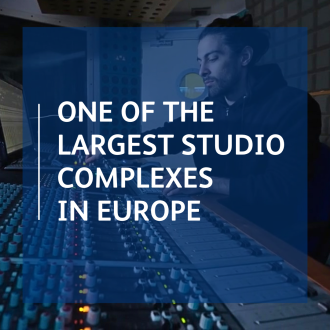

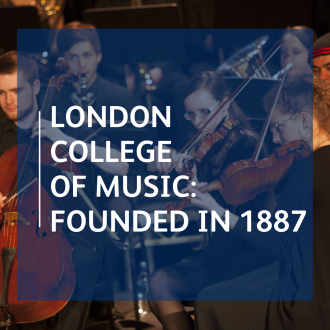
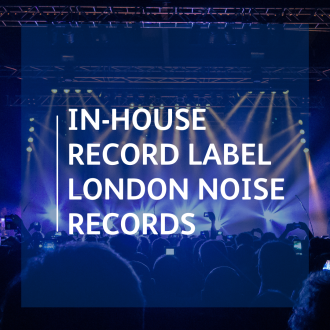
Course detail & modules
This is an industry-focused electronic music course, and it assumes you have a level of competence in composition or music sequencing and production.
You will study a broad range of electronic music, from popular electronic dance music styles to art forms such as electroacoustic music. Your composition studies will include one-to-one tutorials in a specialised area of electronic music.
You will also examine:
- the history and concepts of electronic music
- the creation of sound installations
- live performances.
A number of options allow for further exploration in the theory and practice of sequencing, sound synthesis, sampling, production techniques and the use of Max/MSP.
You will learn through a combination of lectures, practical workshops, seminars and tutorial discussions. Our teaching rooms are equipped with ProTools HD systems, Audient mixing consoles and C24 control surfaces, and lectures will involve frequent practical demonstrations and examples.
The teaching hours for the course are concentrated into two days per week for full-time and one day for part-time students. For the rest of the week you will use the facilities to complete your assignments and develop your composing skills, create music with other LCM students and engage in self-directed study. There are weekly seminars in the first semester followed by one-to-one supervision for your dissertation.
On completing the course you will have acquired the skills and knowledge to gain an enhanced route into the industry or pursue further studies.
You will study all core modules, and must choose TWO optional modules from the following:
- ONE option from: Advanced Hybrid Production OR Interface Design for Music
- ONE option from: Combining Sounds, Immersive Audio and Interactive Music Technology
Compulsory modules
-
Electronic Music Composition 1
This module will focus on advanced electronic compositional techniques, which you will need as a contemporary professional composer. A composition tutor, specific to your chosen area of specialist study, will lead you in individual and group sessions. You will work towards the submission of a diverse portfolio of compositional exercises.
-
Electronic Music Composition 2
During this module you will consolidate and further develop your advanced electronic compositional techniques. The exact content that you will cover will depend on your prior experience, knowledge and expertise.
-
Game Audio
This module focuses on music composition and sound design in video games. You will gain considerable practical experience in composing music and creating sound design for games using specialist game-creation software, while analysing and responding to the unique challenges posed in composing nonlinear and interactive music and sound effects.
-
Research Methods
You will be trained in research methods and critical methodology as preparation for undertaking research that supports and advances the project work in your course. You will define, articulate and critically reflect upon the research concerns of your own practice, thereby underpinning and enhancing your knowledge and understanding of your chosen field of study. You will present your work at the multi-disciplinary LCM postgraduate conference.
-
Project Dissertation
Optional modules
-
Advanced Hybrid Production
You will learn about the evolving notion of the contemporary audio producer as a reflexive, multidisciplinary and innovative sonic artist. You will engage with parallel analogue and digital, software and hardware – hybrid – production workflows (recording, sampling, synthesis, programming, mixing and mastering). You will be able to apply advanced audio techniques, pushing the expressive boundaries of the sonic medium and contextualising current practice.
-
Interface Design for Music
This module will give you a practical introduction to the software design and programming techniques involved in designing contemporary audio applications. You will focus on the Max language and its wide variety of uses, studying the theory, design and architecture of synthesizers, samplers, effects, sequencers and composition engines. You will then develop and demonstrate your own original application.
-
Combining Sounds
This module explores the process of combining sounds, from simplistic mono tape recordings through to multi-tracked, multi-channelled environments. You will deconstruct different genres of music focusing on the working practices and methods applied when combining and mixing sounds. Practical studio sessions will allow you to experiment and analyse sound construction and multi-layering techniques.
-
Immersive Audio
You will explore many of the concepts, research and techniques associated with various aspects of immersive audio in a focused and detailed framework. You will study 3-D audio, through both binaural approaches when working with 360 video – typical of contemporary virtual-reality applications, and speaker-array reproduction using Dolby Atmos as is increasingly used for cinema sound.
-
Interactive Music Technology
You will be schooled in concepts associated with contemporary electronic sound-art, music and sound design for multi-media-installation art, interactive music software and electronic/electroacoustic composition. You will select a particular area for a research, production and performance project of your own. This project will culminate in a performance or installation involving audio technology in a public space as part of LCM’s 'Electric Music' series.
Entry requirements
You need:
- an honours degree (2:1 or above) in music, music technology or a related subject
- advanced musical knowledge (although knowledge of notation and instrumental skills are not required)
- a portfolio of degree level or professional work
- a written statement.
We may also offer you a place based on relevant experience or training, normally from within the work environment. All applications are considered individually.
Find out more about our processes for recognising previous experience.
We look for students who show enthusiasm and a passion for the subject through previous study or professional experience.
If you have any questions about the relevance of your qualifications or experience please contact the course leader shown in the teaching staff.
You need to meet our English language requirement of 6.5 overall score for IELTS, with a minimum of 5.5 for each of the 4 individual components (Reading, Writing, Speaking and Listening). Visit our English language requirements page for information on other English language tests we accept.
You also need academic qualifications at the same level as UK applicants. In some countries where teaching is in English, we may accept local qualifications. Check for local equivalents.
We offer pre-sessional English language courses if you do not meet these requirements. Find out more about our English Language courses.
You need advanced musical knowledge (although knowledge of notation and instrumental skills are not required), and you will be asked to provide us with:
- a portfolio of degree level or professional work
- a written statement.
We look for students who show enthusiasm and a passion for the subject through previous study or professional experience.
If you have any questions about the relevance of your qualifications or experience please contact the course leader shown in the teaching staff.
Fees & funding
Please note:
- Fees for the 2026/27 academic year and onwards may be subject to Government regulation and change.
- Tuition fees are charged for each year of your course. If your course runs for two years or more, you will need to pay the fee for each academic year at the start of that year.
- If your course runs for less than two years, the cost above is for your full course and you will need to pay the full fee upfront.
- If no fee is shown above then the fees for this course are not available yet. Please check again later for updates.
Funding your studies
If you are studying a Masters course you may be eligible to apply for a Postgraduate Loan, this may help contribute towards your course fees and living costs.
Additional funding is available to some types of students, such as disabled students or those with dependants.
We offer a range of scholarships and bursaries, including awards for specific subjects.
Awards for music students are also on offer.
View full details, including conditions and eligibility.
Please note:
- Fees for the 2026/27 academic year and onwards may be subject to Government regulation and change.
- Tuition fees are charged for each year of your course. If your course runs for two years or more, you will need to pay the fee for each academic year at the start of that year.
- If your course runs for less than two years, the cost above is for your full course and you will need to pay the full fee upfront.
- If no fee is shown above then the fees for this course are not available yet. Please check again later for updates.
International students - funding your studies
We offer scholarships for international students including International Ambassador Scholarships.
Further information about funding and financial support for international students is available from the UK Council for International Student Affairs.
Teaching staff

Larry Whelan
I am a Senior Lecturer at the London College of Music and a practising composer and performer. I have produced recordings with Solus 3, Transglobal Underground, and Jah Wobble and Temple of Sound, among others.
I am a Senior Lecturer at the London College of Music and a practising composer and performer. I have produced recordings with Solus 3, Transglobal Underground, and Jah Wobble and Temple of Sound, among others.
Study & career progression

This course helps you build a wide range of skills, knowledge and creative strategies essential for a successful career in the contemporary, fast-changing music industry.
Once you graduate you could go on to work as a:
- composer
- sound designer
- remixer.
Alternatively, you may want to further your study at PhD level. Please see details of our Graduate School.
How to apply

You can apply online at any time by following the link below.
Our application form will ask you for some information about:
- what you want to study
- your previous qualifications or experience
- your references
- how we can contact you.
Want to ask us a question first? We would love to hear from you. Contact us free on:
- 0800 036 8888
- courses@uwl.ac.uk
Apply for this course
Next steps after making your application
We aim to make a decision on your application as quickly as we can. If we need any more information about your qualifications, we will be in touch.
In the meantime, come and visit us and find out more about what studying at UWL is like. Sign up for an open day or join a campus tour.
Visit us and see for yourself
Talk to our tutors and find out about our courses and facilities at our next open day or join a campus tour.
We're here to help
Any questions about a course or studying at UWL? We're here to help - call us on 0800 036 8888 (option 2, Monday – Friday 10am-4pm) or email us on courses@uwl.ac.uk.
Our postgraduate prospectus
All of our courses in one place - download now or order a hard copy.

You can apply online at any time by following the link below.
Our application form will ask you for some information about:
- what you want to study
- your previous qualifications or experience
- your references
- how we can contact you.
Want to ask us a question first? We would love to hear from you. Contact us free on:
- 0800 036 8888
- courses@uwl.ac.uk
Apply for this course
Next steps after making your application
We aim to make a decision on your application as quickly as we can. If we need any more information about your qualifications, we will be in touch.
In the meantime, come and visit us and find out more about what studying at UWL is like. Sign up for an open day or join a campus tour.
Visit us and see for yourself
Talk to our tutors and find out about our courses and facilities at our next open day or join a campus tour.
We're here to help
Any questions about a course or studying at UWL? We're here to help - call us on 0800 036 8888 (option 2, Monday – Friday 10am-4pm) or email us on courses@uwl.ac.uk.
Our postgraduate prospectus
All of our courses in one place - download now or order a hard copy.

You can apply online at any time by following the link below.
Our application form will ask you for some information about:
- what you want to study
- your previous qualifications or experience
- your references
- your visa (if required)
- how we can contact you.
Want to ask us a question first? Our dedicated international students’ team would love to hear from you.
- email international@uwl.ac.uk to submit a question
Apply for this course
Next steps after making your application
We aim to make a decision on your application as quickly as we can. If we need any more information about your qualifications, we will be in touch.
In the meantime, come and visit us and find out more about what studying at UWL is like. Sign up for an open day or join a campus tour.
Visit us and see for yourself
Talk to our tutors and find out about our courses and facilities at our next open day or join a campus tour.
We're here to help
Any questions about a course or studying at UWL? We're here to help - call us on 0800 036 8888 (option 2, Monday – Friday 10am-4pm) or email us on courses@uwl.ac.uk.
Our postgraduate prospectus
All of our courses in one place - download now or order a hard copy.
Search for courses
ARTSFEST
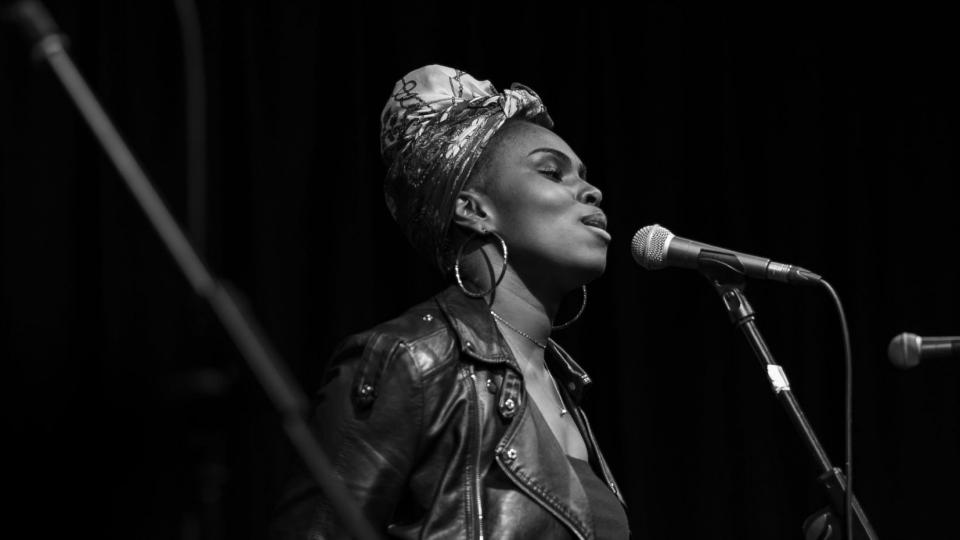
Find out more about the work our students produce and view some of their recent work by visiting our Music Performance and Composition ARTSFEST page.
Student life at UWL
Important notes for applicants
Disclaimer
*Modern universities - defined as higher education institutions that were granted university status in, and subsequent to, 1992.
**The National Student Survey 2023 and 2024 - Average of answers to all questions by registered student population. Excludes specialist institutions.
Testimonials - our students or former students provided all of our testimonials - often a student from the course but sometimes another student. For example, the testimonial often comes from another UWL student when the course is new.
Optional modules - where optional modules are offered they will run subject to staff availability and viable student numbers opting to take the module.
Videos - all videos on our course pages were accurate at the time of filming. In some cases a new Course Leader has joined the University since the video was filmed.
Availability of placements - if you choose a course with placement/internship route we would like to advise you that if a placement/internship opportunity does not arise when you are expected to undertake the placement then the University will automatically transfer you to the non-internship route, this is to ensure you are still successful in being awarded a degree.


